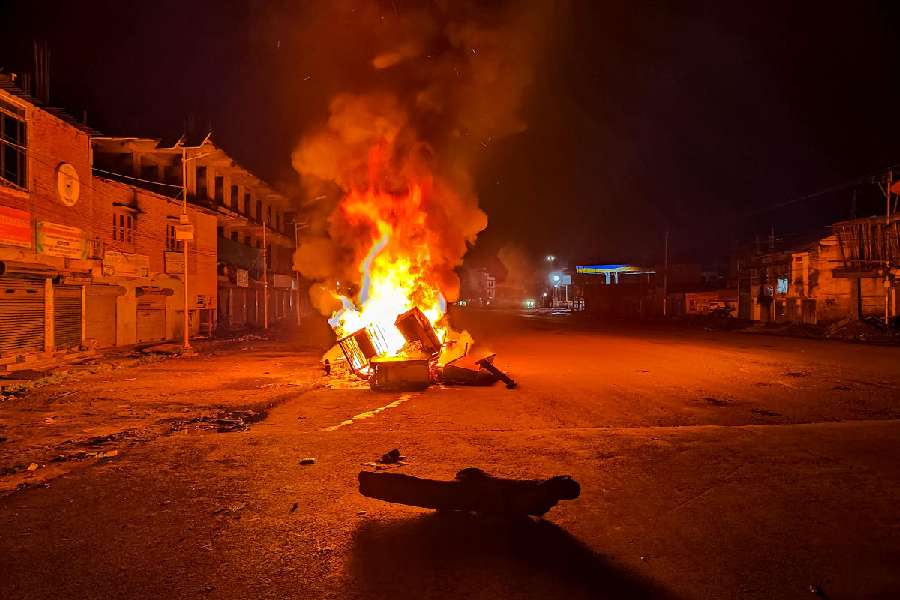The Manipur unit of the Janata Dal United has censured the Union and state governments, both led by the BJP with which the party has an alliance at the Centre, for failing to do anything “concrete” to resolve the nearly 15-month-old ethnic conflict there.
It has called for “necessary and sincere measures” to restore normalcy, peace and harmony in Manipur, where continuing violence since May 3 last year between the majority Meiteis and tribal Kuki-Zos has left over 220 people dead and 67,000 homeless.
The Manipur unit’s hard-hitting resolution contrasts with the silence of the top JDU leaders on the ethnic violence, including in the ongoing session of Parliament, where the Opposition has been trying to corner the government on the issue.
However, the JDU headquarters in Bihar circulated copies of the resolution — adopted at an executive meeting of the Manipur unit in Imphal on Saturday afternoon — suggesting an attempt to put pressure on ally BJP.
The BJP-led government at the Centre depends for its stability on the support of the JDU, with its 12 Lok Sabha members, and the Telugu Desam Party, which has 16 members.
However, the JDU is not a BJP ally in Manipur, where it has a strong presence on its own. It had won six of the 60 seats in the 2022 Assembly polls, but five of its MLAs switched over to the BJP after a few months.
The meeting in Imphal was chaired by the JDU’s national council member and state chief spokesperson Nimaichand Luwang.
“Lackadaisical approach of both the Union and state governments in addressing the protracted conflict in Manipur for the last 15 months is being viewed seriously. No visible concrete measures appear to have been initiated by them so far, resulting in untold suffering of all residents of Manipur irrespective of community or religion,” the resolution says.
“It is high time for the Union government, which is endowed with authority and wherewithal, to immediately take steps towards resolving the conflict through dialogue and security measures. The state government of Manipur is expected to discharge its responsibility to maintain law and order in the state as envisaged by the Constitution of India. We urge all concerned to take necessary and sincere measures towards achieving peace and normalcy.”
The JDU’s Manipur unit has demanded the abrogation of the “suspension of operations” agreement signed in 2008 by the central and state governments with two Kuki-Zo militant outfits.
JDU Manipur secretary-general Dorendro Maisnam told The Telegraph that the party had to come out with the resolutions because “nothing is being done for restoring peace and harmony in the state”.
“Maybe the Centre is doing things secretly, but we do not see anything on the ground,” he said.
Luwang said the unhappiness and suffering of the people of Manipur was reflected in the recent Lok Sabha elections, with the Congress winning both the seats in the state.
“One of the major issues is that the BJP-led governments at the Centre and here have neither been able to fix responsibility for the violence, nor have taken the responsibility for failing to protect the lives and property of the people of Manipur,” Luwang told this newspaper.
The JDU national council member alleged the involvement of Myanmar and China in the violence, asserting that this represented the failure of the Union home ministry.
Manipur plunged into violence following a tribal protest against a high court order favourable to the majority Meitei community’s demand for Scheduled Tribe status.
There were, however, pre-existing fault lines between the two communities over issues such as land ownership and the assimilation of refugees from Myanmar. The Meiteis are mostly Hindus and the Kuki-Zos, Christians.










